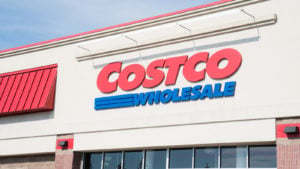Fortunately, some stocks aren’t overvalued and look like bargains. While valuations have gotten stretched in relation to growth and technology stocks, that’s not necessarily the case with blue-chip stocks. Shares of more mature companies have not risen as quickly and many still look reasonably valued at current levels. With a little examination, deals can be found in the current market.
Let’s delve into three such blue-chip bets worth capturing.
T-Mobile (TMUS)

T-Mobile (NASDAQ:TMUS) suddenly looks interesting. The telecommunications giant recently announced that it is acquiring a majority of rival U.S. Cellular (NYSE:USM) in a deal valued at $4.40 billion. The acquisition includes U.S. Cellular’s mobile phone customers, network of retail stores and some of its wireless spectrum. The purchase is being made through a combination of cash and up to $2 billion of debt.
T-Mobile said it will use U.S. Cellular’s wireless spectrum to improve internet coverage in rural areas across the U.S. Analysts say the deal should lead to improved connectivity for U.S. Cellular customers throughout the country. T-Mobile said it will allow U.S. Cellular customers to keep their current wireless plan or switch to a new plan that it offers. The acquisition is subject to regulatory approval and a closing date hasn’t been announced.
Therefore, TMU has rallied since the U.S. Cellular acquisition was announced. The company’s share price is up 36% over the past 12 months. Yet, it still looks to have a reasonable valuation, trading at 24 times future earnings estimates.
DuPont (DD)

Chemical producer DuPont de Nemours (NYSE:DD) has become the latest company to break itself into separate publicly traded companies. In DuPont’s case, it plans to split into three public concerns. One of the new companies will focus on materials with brands such as Tyvek and Kevlar. A second will serve the semiconductor industry, and the third will focus on water purification.
Also, DuPont announced that current Chief Executive Officer (CEO) Ed Breen is stepping down and will be replaced by former Chief Financial Officer (CFO) Lori Koch. After the break-up, the new DuPont will be a materials company serving the medical, industrial, construction and automotive markets. Several other publicly traded companies have successfully split their businesses in recent years, notably General Electric (NYSE:GE).
This is not the first time that DuPont has broken up its business. The company merged with Dow Inc. (NYSE:DOW) in 2017 and then formed three separate companies. In the last 12 months, DuPont’s stock has risen 13%.
Costco Wholesale (COST)

Costco Wholesale (NASDAQ:COST) looks like a safe bet after the warehouse club reported yet another strong quarter of financial results. The company reported EPS of $3.78, which topped analyst estimates of $3.70. Revenue of $57.40 billion was a slight miss compared to the Wall Street consensus forecast of $58 billion. However, sales were up 9% from a year earlier, and same-store sales rose 6%.
Further, management said they continue to see strength in e-commerce sales, with digital same-store sales growing 20% year-over-year (YOY) during Q1. The company is working to improve delivery times of e-commerce shipments and adding in-store pick-up options for online orders. Visits to Costco outlets rose 9% YOY in Q1, outpacing foot traffic at competitors such as Walmart (NYSE:WMT) and Target (NYSE:TGT).
It’s not undervalued per se, but COST stock is a consistent market outperformer and blue-chip stock worth owning long-term. The company’s share price is up 28% on the year.
On the date of publication, Joel Baglole did not have (either directly or indirectly) any positions in the securities mentioned in this article. The opinions expressed in this article are those of the writer, subject to the InvestorPlace.com Publishing Guidelines.
Joel Baglole has been a business journalist for 20 years. He spent five years as a staff reporter at The Wall Street Journal, and has also written for The Washington Post and Toronto Star newspapers, as well as financial websites such as The Motley Fool and Investopedia.
